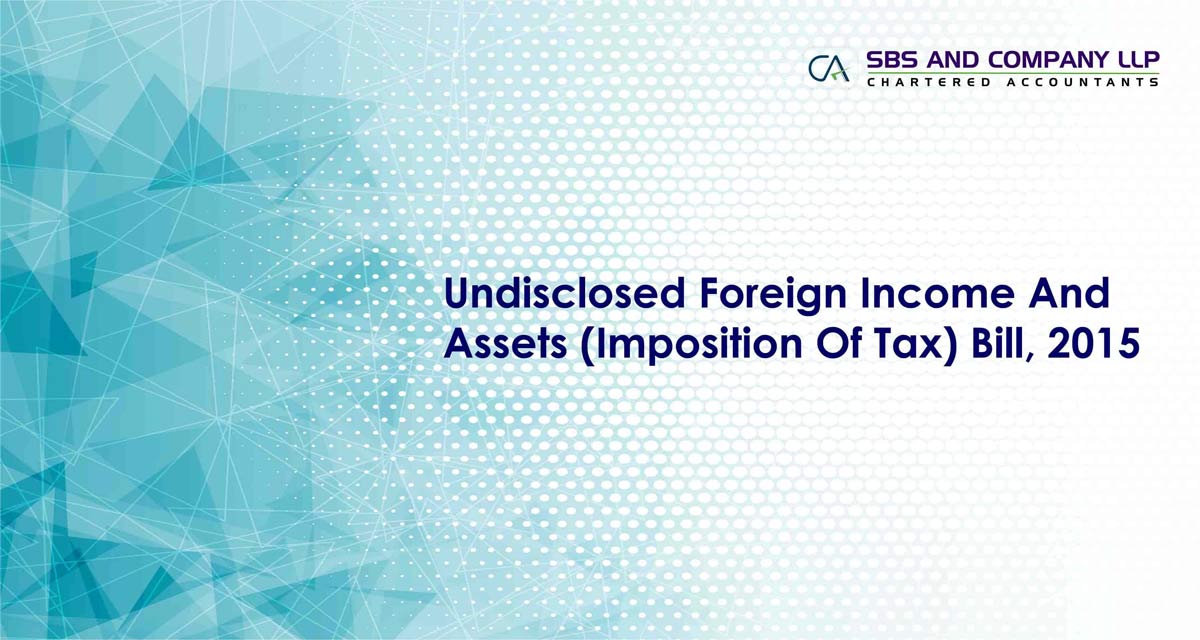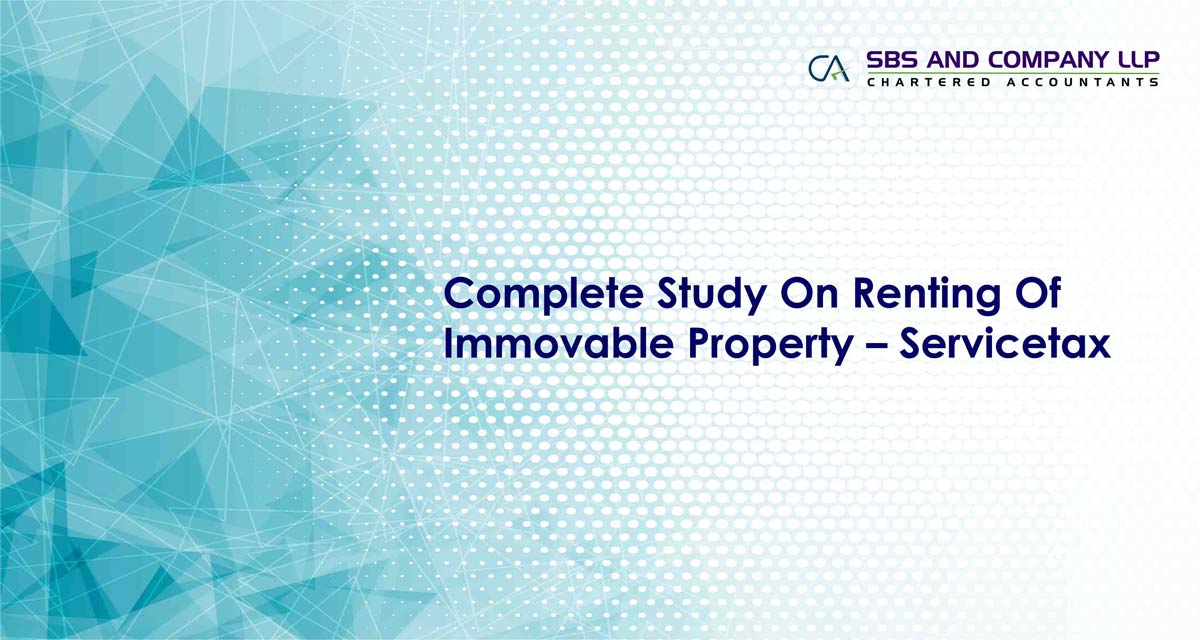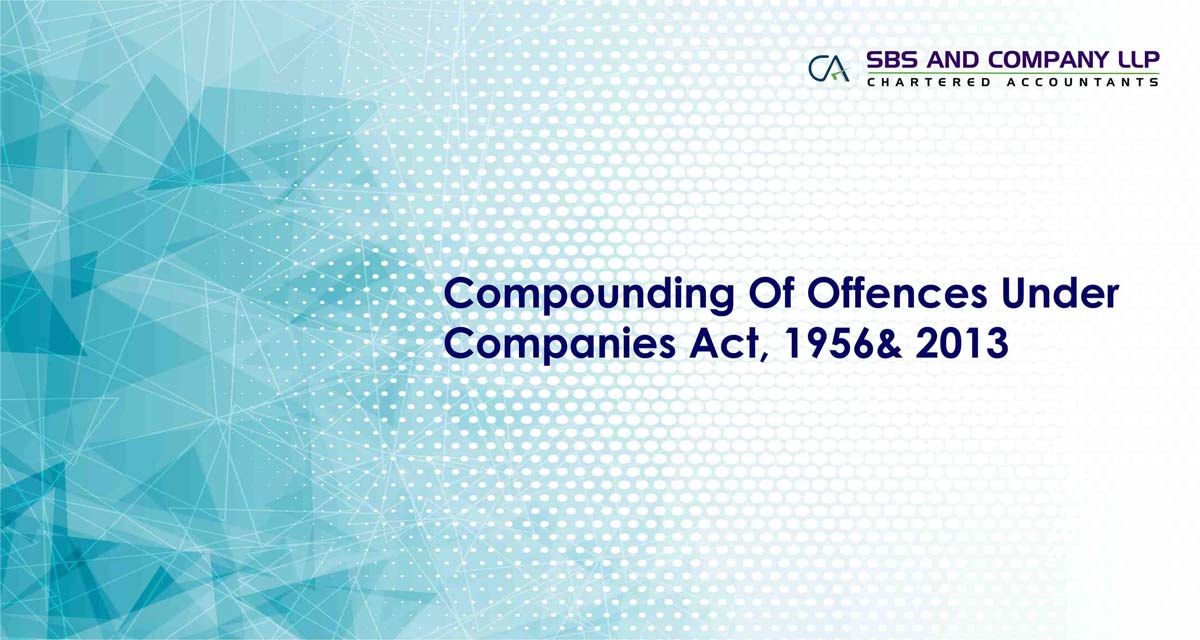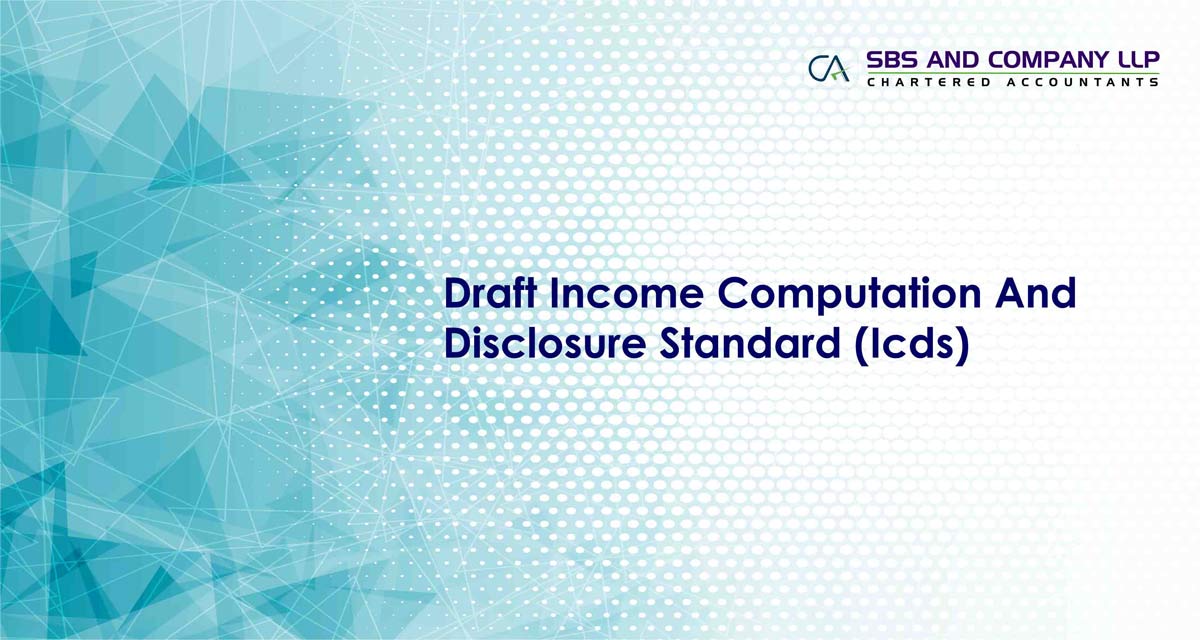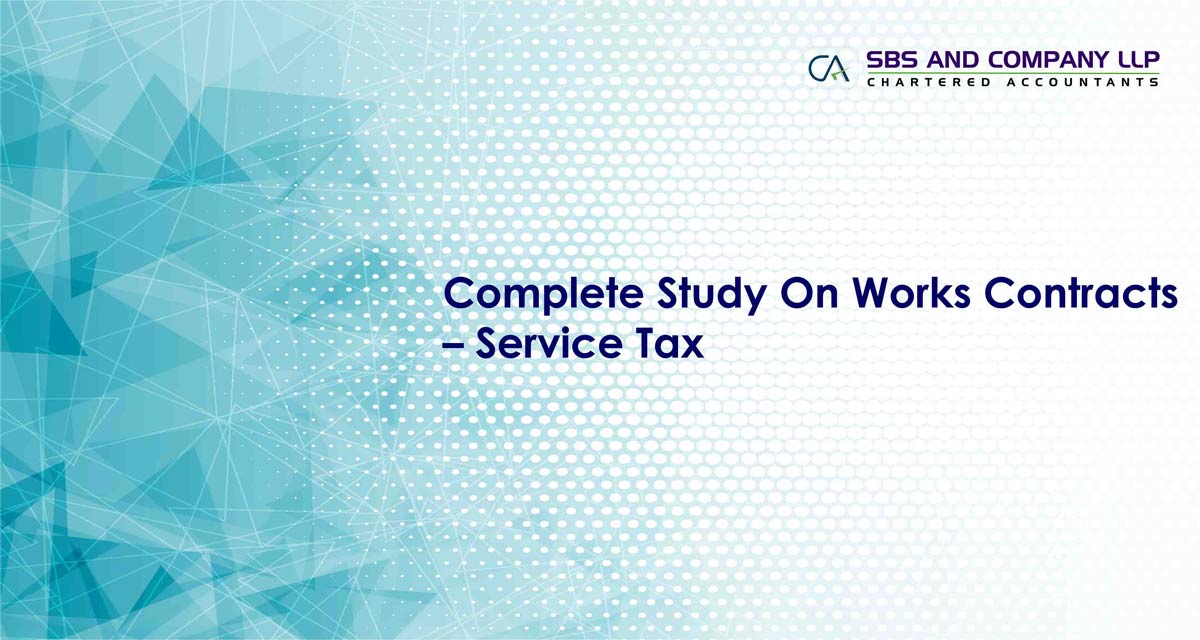- SBS AND COMPANY LLP
- Blog
- Hits: 1592
Undisclosed Foreign Income And Assets (Imposition Of Tax) Bill, 2015
Background:
The Finance Minister, in his budget speech, while acknowledging the limitations under the existing law, had conveyed the considered decision of the Government to enact a comprehensive new law on black money to specifically deal with black money stashed away abroad. He also promised to introduce the new Bill in the current Session of the Parliament.
In order to fulfil the commitment made by the Government to the people of India through the Parliament, the Undisclosed Foreign Income and Assets (Imposition of Tax) Bill, 2015 has been introduced in the Parliament on 20.03.2015. The Bill provides for separate taxation of any undisclosed income in relation to foreign income and assets. Such income will henceforth not be taxed under the Income-tax Act but under the stringent provisions of the proposed new legislation.
Summary of the Bill:
This Article is our effort to summarize the introduction of the Undisclosed Foreign Income and Assets (Imposition of Tax) Bill, 2015 (“Bill”) in the lower house of the Parliament.
Presently, the Bill is applicable to a person resident of India who has undisclosed foreign income/ assets (including financial interest in any entity). The Bill proposes to tax such income at the rate of 30% and also levy stringent penalties.
The Bill provides for stringent prosecution mechanism. However, as a one-time voluntary compliance, the Bill proposes to provide immunity from prosecution if appropriate taxes and penalty have been paid. The Bill, once passed, proposes to be effective from tax year 2015-16.
With Effect from:
The Bill proposes to be enacted with effect from 1 April 2016 i.e., tax year 2015-16.
Residents covered:
The Bill proposes to include all taxpayers who are resident in India under the Indian Tax Laws (ITL). The Bill however, excludes category of “resident but not ordinarily resident ” from its ambit.
Domain of the Bill
- The Bill proposes to include undisclosed foreign income/ asset which is defined to mean (a) undisclosed income from a source located outside India, and (b) value of undisclosed asset (including financial interest in any entity) located outside India which is held in the name of the taxpayer/where the taxpayer is a beneficial
- Undisclosed foreign income/value of undisclosed foreign assets is taxable at 30% on gross basis, without any benefit deduction/ allowance/set of losses as provided under the
- Foreign income is considered as “undisclosed” if the same is not reported in the return of income (ROI) of the relevant year furnished under the ITL, or in respect of which ROI was to be furnished, but was not filed within the stipulated time under the Foreign asset is “undisclosed” if the taxpayer is not able to explain the source of investment in such asset or explanation offered, in the tax authority ’s opinion, is not satisfactory.
- Undisclosed foreign asset will be chargeable to tax with respect to fair market value, which will be determined in accordance with the prescribed Such asset will be taxable in the year in which the same comes to notice of the tax authority.
Tax office Audit procedure
- The Bill does not require the taxpayer to file ROI under the proposed The Bill proposes direct assessment of undisclosed foreign income/ asset on the basis of information received from any sources. In such a case, the Bill proposes to follow the principles of natur al justice, such as, issue of notice (no specific time limit prescribed in the Bill for issuance of notice), granting an opportunity of hearing to taxpayer, furnishing documentary evidences etc.
- Subsequent thereto, the tax authority is required to pass a final order, in writing, within two years from the end of tax year in which the notice was
- The Bill proposes remedial measures such as appeal , along the lines of the ITL. The Bill also lays down guidelines on rectification/revision of tax authority ’s orders, provisions for recovery for arrears etc., which is largely on the lines of the ITL.
Levy of interest
- The Bill proposes to levy interest if ROI has not been furnished, or in case of default on compliance with advance tax liability under the ITL, in relation to the undisclosed foreign
Penalties:
- The Bill has proposed stringent penalties in respect of undisclosed overseas income/ asset which are as follows:
|
Particulars |
Penalty |
|
Penalty for concealment of overseas income/ asset |
3 times the amount of tax |
|
Failure to furnish ROI within specified time under ITL • Resident taxpayer (excludes resident but not ordinarily resident) who fails to furnish • ROI within specified time under ITL, and who, at any time during the relevant year • Held any overseas assets (including financial interest in any entity) as beneficialowner/ otherwise; or • Held beneficial interest in any overseas assets (including financial interest in any entity); or Earned income from a source outside India
No penalty will be levied if overseas asset comprises of bank account only, and wherethe aggregated balance does not exceed INR 5,00,000 at any time during the tax year |
INR 10 lakhs |
|
Failure to furnishing information or furnishing inaccurate information in ROI under ITL • Resident taxpayer (excludes resident but not ordinarily resident) who has furnished ROI under ITL but does not furnish any information/furnishes inaccurate particulars inrelation to any overseas asset (including financial interest in any entity); or • Any income from a source located out side Indiaoverseas assets could be held as a beneficial owner or held on account of a thirdperson • No penalty will be levied if overseas asset comprises of bank account only, and wherethe aggregated balance does not exceed INR 500,000 at any time during the tax year |
INR 10 lakhs |
|
Failure to pay tax under proposed law • Where taxpayer is treated as a defaulter in making payment of any tax and he is incontinuing default |
Equal to the amount of t ax |
|
Particulars |
Penalty |
|
Other penalty Any person is liable to penalty if, without any reasonable cause, fails to: • Answer any question from the tax authority in exercise of its powers conferred under the Bill; • Sign any statement in any proceedings under the Bill, which the tax authority may legallyrequire such person to sign; • Attend/produce book of account/documents/evidence as required |
INR 0.50 lakhs– INR 2 lakhs |
Key aspects for levy of penalty:
- Principle of natural justice will be followed, e., issue of notice, opportunity of hearing etc.
- Prior approval of Joint Commissioner,subject to specific quantum of
- No penalty can be imposed after expiry of one year from the end of the tax year in which notice for levy of penalty was
Prosecution:
The Bill has proposed initiation of prosecution for certain non-compliances in respect of undisclosed overseas income/ asset. The Bill clarifies that prosecution for offences shall be in any other Indian laws. The Bill proposes the following:
|
Offence |
Punishment |
|
Resident taxpayer (excludes resident but not ordinarily resident) who “wilfully ” fails to furnish ROI within specified time under ITL, or who has furnished ROI, wilfully fails to furnish any information/ furnishes inaccurate particulars in relation to: • Any overseas asset (including financial interest in any entity); or Any income from a source outside India • No prosecution if ROI is furnished before the end of the assessment year • Overseas assets could be held as a beneficial owner or held on account of a third person |
Rigorous imprisonment(RI) for 6 months- 7 years, with fine |
|
Offence |
Punishment |
|
• Resident taxpayer (excludes resident but not ordinarily r esi dent ) “ wi l f ul l y at t empt s ” t oevade any tax/interest/penalty under proposed law • Any person who “wilfully attempts” to evade payment of any tax/interest/penaltyunder proposed law • The term “wilful attempt” has been defined widely. |
RI for 3 years –10 years, with fine
RI for 3 months –3 years, plus if the Court levies any fine |
|
• If a person makes a statement in any verification, or delivers any account/ statementwhich is false or which he believes to be false • If a person abets/induces another person to make and deliver an • account/ statement/declaration which is false or which he believes to be false |
RI for 6 months -7 years,with fine |
|
• Punishment where any person is convicted for the same offence in the above cases more than once |
RI for 3 years -10 years, with fine of INR 5lakhs -INR 1Crore |
Key aspects on prosecution:
- C o u r t s h a l l p r e s u m e m e n s r e a , i . e . , c u l p a b l e m e n t a l s t a t e ( w h i c h i n c l u d e s intention/motiv e/knowledge ), and it is for the taxpayer to prove absence thereof.
- Approval from Principal Commissioner/Commissioner/Commissioner (Appeals) is a pre-requisite to initiate prosecution
- For offences committed by a company, all persons responsible for the conduct of the company’s business (generally, director/manager/ secretary ) at the time of the offence will be held guilty,unless such person proves that the offence was conducted without his knowledge or that he had exercised due diligence to prevent the commission of such offence.
- There is no provision for compounding
One time window-period for compliance:
- The Bill provides for a one time limited period opportunity f or taxpayers to declare any undisclosed foreign income/ asset which he has acquired from income chargeable to tax under the
- The Taxpayer will need to file declaration in prescribed form before the specified tax authority within a stipulated time period, and pay tax at 30% of the value of asset, and an equal amount of In such cases, no prosecution proceedings will be initiated. Such person will enjoy exemption from levy of wealth tax for past years in relation to the declared assets.
- Such declaration will be invalid if the taxpayer does not pay the appropriate tax and penalty within the notified period, or in cases where there is any misrepresentation/ suppression of
- The Taxpayer is not eligible for one time declaration (a) if in relation to the undisclosed foreign asset including (bank account whether having any balance or not) located outside India, any proceeding under the ITL is pending for any past year; or (b) where information in respect of such assets has been received by competent authority from other country under an agreement, or (c)prosecution proceedings have been initiated under certain specific
Analysis/ Comments:
- The Bill also proposes to amend Prevention of Money Laundering Act (PMLA), 2002 to include offence of tax evasion under the proposed legislation as a scheduled offence under Thus, in keeping with the commitment of the government for focussed action on black money front, an unprecedented and multi-pronged attack has been launched to root out the menace of black money. The Government is confident that this new law will act as a strong deterrent and curb the menace of black money stashed abroad by Indians.
- Income/ assets which are stashed overseas, particularly in tax havens, and offshore financial centres, have dominated public debate in the recent Evasion of tax robs the nation of critical resources to undertake programs for social inclusion and economic development.
- The Supreme Court of India and the public, at large, have unequivocally expressed concerns on the
- In the past, the GOI had, on a number of occasions, promised to track down and bring back undisclosed foreign assets/incomes.
- Recognizing the limitations of existing laws in India and in keeping with its commitment, the GOI has launched a multi-pronged attack to root out the menace of undisclosed overseas assets/incomes by tabling the Bill in the lower house of the Indian
- The Bill provides separate regime for taxation of undisclosed foreign income/ asset which was not disclosed or reported under the ITL and which has come to the notice of the tax authority on or after 1 April
- The foreign income/ asset detected by the tax authority before 1 April 2015 wil lcontinue to be governed by the Further, by providing taxation of undisclosed foreign assets in the year in which such asset comes to notice of the tax authority, the Bill has tried to overcome challenges in reopening past assessments under the ITL including reopening within a period of 16 years.
- The Bill proposes to apply to all persons resident in India, and may extend to expatriates who, by virtue of their presence in India, acquire the status of a ‘resident.’ The Bill may also apply to a foreign company which, on account of the residency test of place of effective management, proposed in Finance Bill 2015, becomes a ‘resident ’ in The Bill, however, offers a one-time opportunity to the taxpayer to pay taxes/penalty and mitigate rigourof stringent prosecution risk.
- The Bill will need to be passed in the lower house of the Parliament, and thereafter, in the upper Once passed, the GOI will await ascent by the President of India before the Bill is enacted.
This article is contributed by Partners of SBS and Company LLP – Chartered Accountant Company You can be reached at This email address is being protected from spambots. You need JavaScript enabled to view it.


